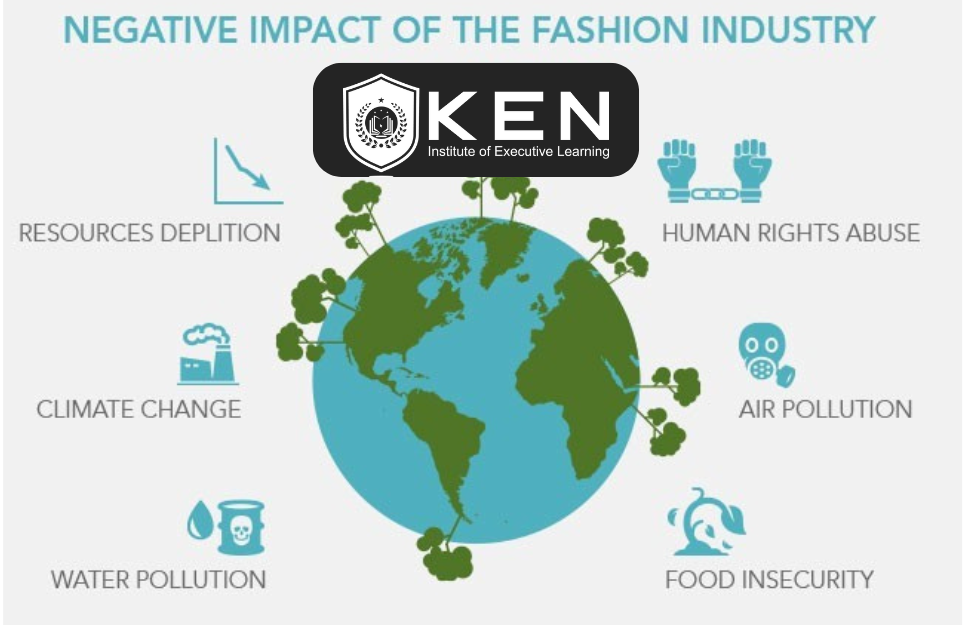
Fast fashion refers to the rapid production of low-cost clothing that mimics current fashion trends. While it may seem appealing due to its affordability and accessibility, “The Impacts of Fast Fashion” on our planet is significant and concerning. The fast fashion industry’s relentless pursuit of profit comes at a significant cost to the environment, contributing to resource depletion, pollution, waste generation, climate change, and social injustice.
These Impacts of Fast Fashion require a shift towards more sustainable and ethical practices throughout the fashion supply chain, as well as greater consumer awareness and responsibility.
Various environmental impacts of Fast fashion:
Resource Depletion:
Fast fashion relies heavily on the extraction of finite resources such as water, oil, and natural fibers like cotton. Cotton cultivation, for instance, requires vast amounts of water and pesticides, contributing to water scarcity and environmental pollution.
Water: Cotton, one of the most common fibers used in fast fashion, is a water-intensive crop. It typically requires large amounts of irrigation water, leading to water scarcity in regions where it is grown. For example, the Aral Sea in Central Asia has shrunk significantly due to the diversion of water for cotton irrigation.
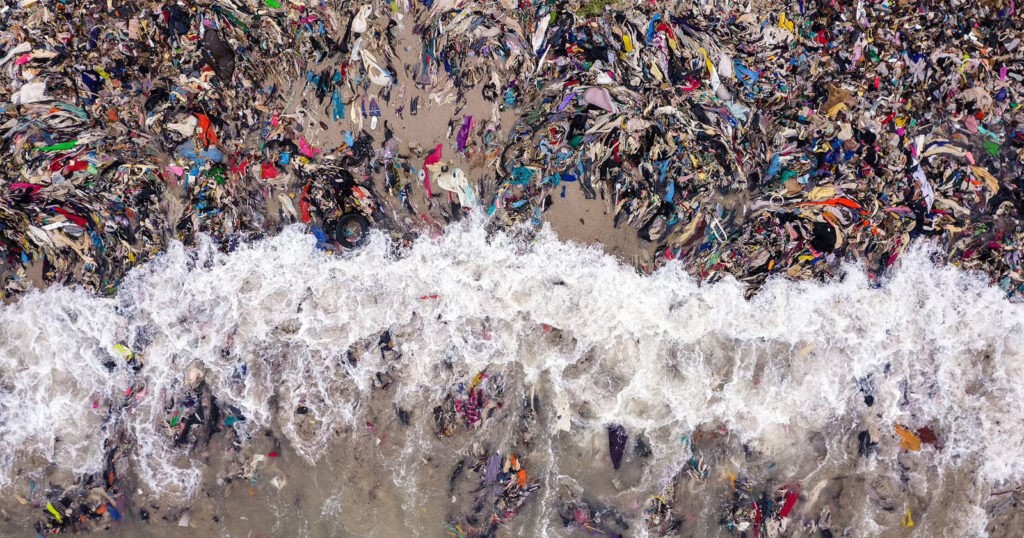
Oil: Synthetic fibers like polyester, nylon, and acrylic are derived from petroleum-based chemicals. The extraction and processing of crude oil for these fibers contribute to habitat destruction, air, and water pollution.
Natural Fibers: The production of natural fibers such as cotton, linen, and wool also requires significant land use and agricultural inputs like fertilizers and pesticides, which can degrade soil quality and harm local ecosystems.
Pollution:
The most hazardous Impacts of Fast Fashion are due to various polluting processes of production, including dyeing, printing, and finishing textiles. These processes release harmful chemicals into the environment, contaminating waterways and soil, and posing health risks to both humans and wildlife.
Chemical Usage: Textile manufacturing involves the use of various chemicals for processes like bleaching, dyeing, and finishing. These chemicals include toxic substances such as azo dyes, heavy metals, and formaldehyde, which can contaminate water sources and soil, posing risks to human health and ecosystems.
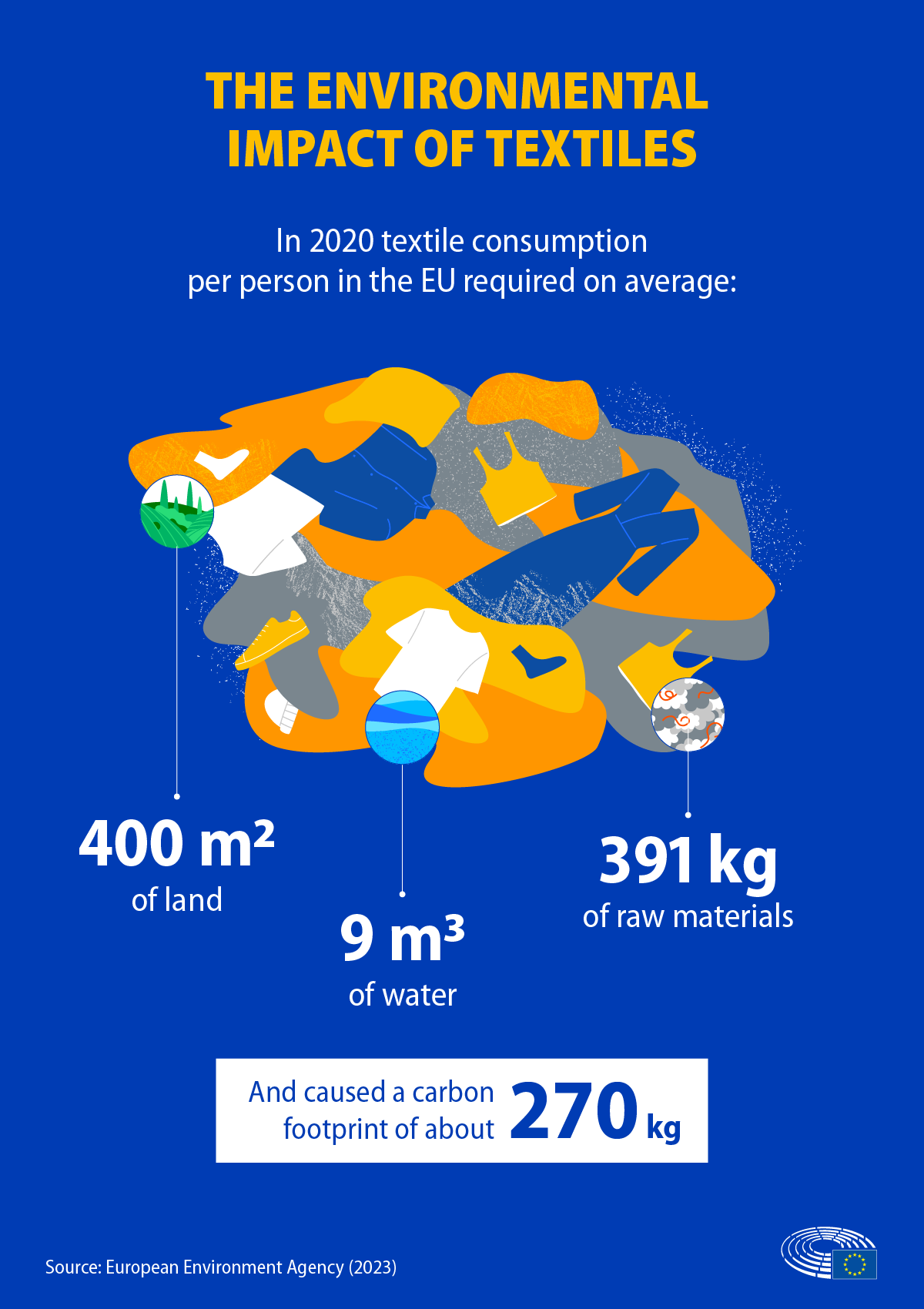
Wastewater: Textile factories discharge large volumes of untreated or inadequately treated wastewater containing harmful chemicals directly into rivers and oceans, leading to water pollution and ecosystem damage.
Waste Generation :
Fast fashion is characterized by a “throwaway culture,” where garments are quickly discarded in favor of new trends. As a result, enormous amounts of textile waste are generated annually, much of which ends up in landfills, where it can take decades or even centuries to decompose.
Landfill Overflow: The impact of Fast fashion’s disposable nature results in a staggering amount of textile waste. According to the Environmental Protection Agency (EPA), the average American throws away around 70 pounds of clothing and other textiles annually, much of which ends up in landfills.
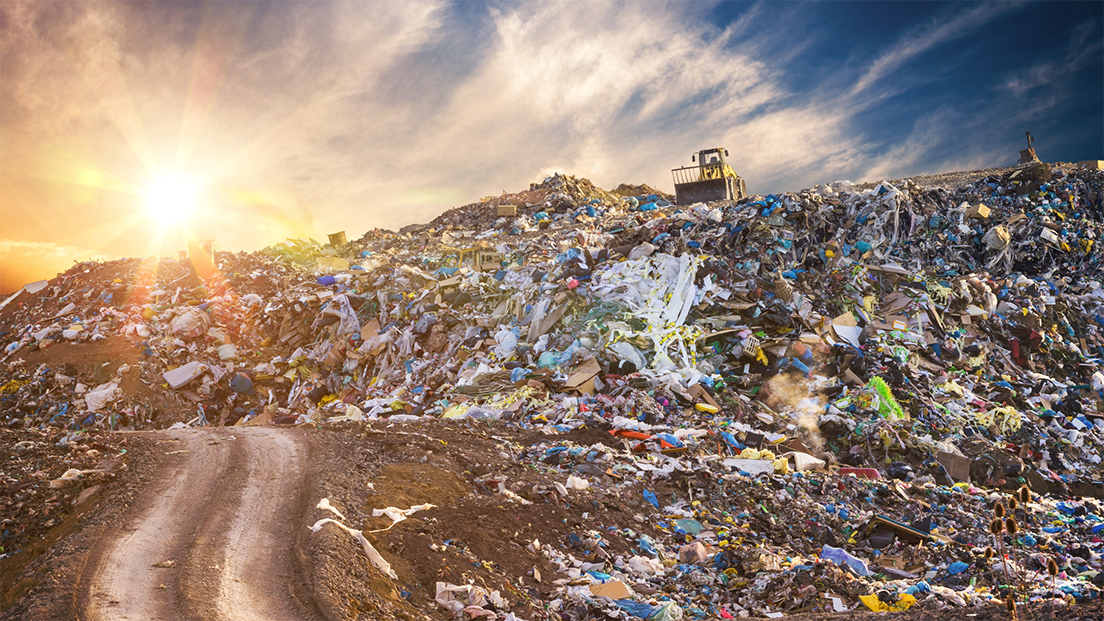
Non-Biodegradable Materials: Synthetic fibers, which are prevalent in fast fashion, do not biodegrade easily. Instead, they persist in the environment for hundreds of years, contributing to long-term pollution.
Carbon Footprint:
The fast fashion industry is a major contributor to greenhouse gas emissions. From the production and transportation of raw materials to the manufacturing and distribution of clothing, each step of the fast fashion supply chain emits carbon dioxide and other greenhouse gases, exacerbating climate change.
Emissions from Production: The production of textiles and clothing involves energy-intensive processes such as spinning, weaving, knitting, dyeing, and sewing, all of which contribute to carbon emissions. Additionally, the transportation of raw materials and finished products further adds to the carbon footprint. Thus the impact of the Fast fashion industry is one of the major causes of global warming.
Emissions from Disposal: When clothing is incinerated or decomposes in landfills, it releases greenhouse gases such as carbon dioxide and methane, further contributing to climate change.
Ethical Concerns:
In addition to its environmental impact, fast fashion often involves unethical labor practices. Garment workers, primarily in developing countries, are often paid low wages, work in unsafe conditions, and face exploitation and abuse. This exploitation is fueled by the industry’s relentless drive to minimize costs and maximize profits.
Labor Exploitation: An unethical impact of Fast fashion in many fast fashion supply chains is the exploitation of garment workers, often in developing countries, subjected to low wages, long working hours, unsafe working conditions, and even child labor. The pressure to meet tight production deadlines and cost targets can lead to exploitation and abuses of workers’ rights.

Overconsumption :
Fast fashion encourages consumers to constantly buy new clothing items to keep up with rapidly changing trends. This culture of overconsumption not only leads to environmental degradation but also perpetuates unsustainable consumer behavior patterns.
Impulse Buying: Fast fashion relies on frequent turnover of styles and trends, encouraging consumers to purchase clothing impulsively. This constant demand for new items fuels overconsumption and contributes to the cycle of waste generation and resource depletion.
Short Lifespan: Fast fashion garments are often of low quality and designed for short-term use, further exacerbating the cycle of overconsumption and waste.
Biodiversity Loss:
The intensive use of pesticides in cotton cultivation and deforestation for the expansion of textile plantations contribute to habitat destruction and biodiversity loss. This loss of biodiversity can have far-reaching ecological consequences, affecting ecosystems and the services they provide.
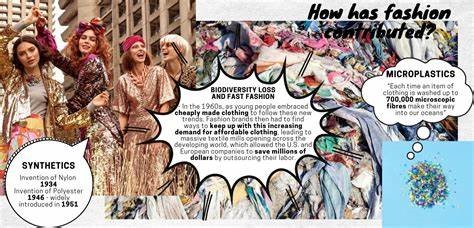
Pesticide Use: The intensive use of pesticides and fertilizers in cotton cultivation can lead to soil erosion, water contamination, and loss of biodiversity. Pesticides also harm beneficial insects, birds, and other wildlife, disrupting ecosystems.
Deforestation: Impacts of Fast Fashion such as expansion of textile plantations, particularly for fibers like cotton and viscose, can drive deforestation in ecologically sensitive regions, leading to habitat loss for numerous plant and animal species.
Water Pollution:
The textile industry is one of the largest contributors to water pollution globally. Wastewater from textile factories often contains hazardous chemicals, such as heavy metals and dyes, which contaminate water sources and harm aquatic life.
Textile Dyeing: Dyeing processes in textile manufacturing require significant amounts of water and chemicals. In countries with lax environmental regulations, textile factories often discharge untreated or partially treated wastewater directly into rivers and streams, contaminating freshwater sources and harming aquatic ecosystems.
Summary
Addressing the environmental impact of fast fashion requires concerted efforts from all stakeholders, including governments, fashion brands, consumers, and civil society organizations. Implementing sustainable practices such as eco-friendly materials, ethical labor standards, waste reduction, and recycling initiatives is crucial to mitigating the negative effects of fast fashion on our planet.
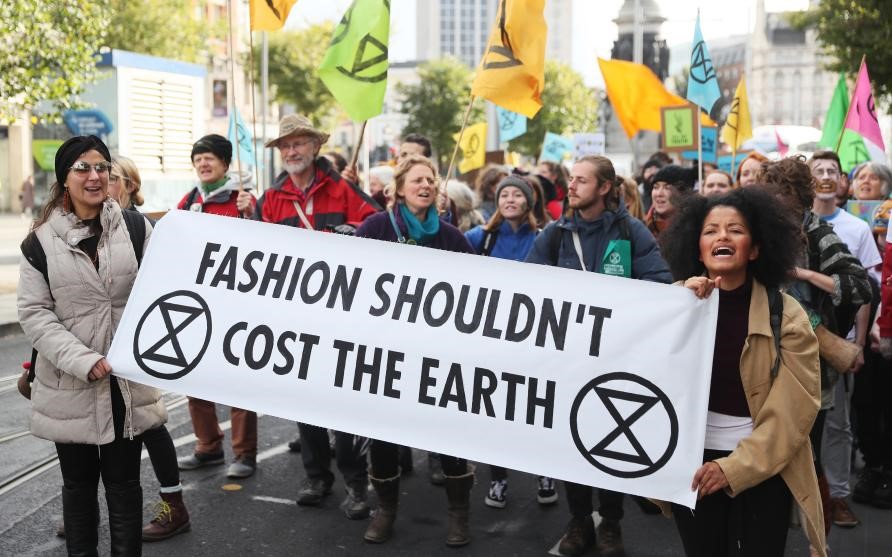
Additionally, raising awareness among consumers about the true cost of fast fashion and promoting a shift towards more responsible consumption habits can help drive positive change in the industry.
To make your career stand out, join courses in Environment and Sustainability with the flexibility of 100% online learning.
Join Ken Institute and unlock a world of online courses in Environment and Sustainability, Occupational Health and Safety, Fire Safety, and Mechanical Engineering. Propel your career to new heights.
Get in touch with us at: info@keneducation.in
Visit our website: www.keneducation.in
Call us on +917569034271
Let’s connect on Facebook, YouTube, LinkedIn, and Instagram.

